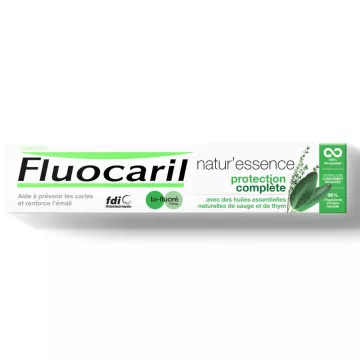


What is oral hygiene and why is it important?
Oral hygiene refers to practices aimed at keeping the mouth, teeth and gums clean and healthy to prevent dental problems such as cavities, gingivitis, periodontitis and bad breath. Good oral hygiene is crucial because it can influence your overall health, including reducing the risk of heart disease and diabetes.
What are the best tooth-brushing techniques?
For effective brushing, use a soft-bristled toothbrush and toothpaste containing fluoride. Brush your teeth at least twice a day, using gentle circular movements to cover all tooth surfaces. Brush for at least two minutes, making sure you also clean the chewing surfaces and gum line. It's essential to change your toothbrush every three to four months, or sooner if the bristles are worn.
How does dental floss contribute to oral hygiene?
Flossing is essential for removing plaque and food debris from the spaces between teeth, where the toothbrush cannot reach. We recommend flossing once a day, preferably before bedtime, to minimize the risk of cavities and gum disease. Be sure to gently pass the floss between each tooth all the way to the gum line, forming a 'C' around each tooth for a thorough cleaning.
What are the signs of oral hygiene problems?
Signs oforal hygiene problems include red, swollen or bleeding gums when brushing or flossing, persistent bad breath, loose teeth, pain when chewing, and visible cavities. If you experience any of these symptoms, you should consult a dentist.
What impact does diet have on oral hygiene?
A diet rich in sugars and acids can contribute to the formation of cavities. To preserve your oral hygiene, opt for a balanced diet rich in fruit, vegetables, lean proteins and dairy products. Limit consumption of sugary drinks and snacks between meals. Water, as the main moisturizer, helps clean teeth and gums between brushings.
How do regular visits to the dentist promote good oral hygiene?
Regular visits to the dentist, recommended at least once every six months, are essential for maintaining good oral hygiene. These visits not only enable professional cleaning to remove accumulated plaque and tartar, but also the early detection of potential problems. Regular check-ups can significantly reduce the risk of severe complications from untreated dental problems.
What role does fluoride play in preventing dental caries?
Fluoride plays a crucial role in preventing dental caries by strengthening tooth enamel, making it more resistant to acid attack by plaque bacteria. The use of fluoride toothpastes and mouthwashes helps to reduce demineralization and promote remineralization of weakened areas of enamel. It is advisable to choose a toothpaste with the right concentration of fluoride according to age and specific needs, after consulting a dentist.
How to choose the right toothpaste for optimal oral hygiene?
Choosing the right toothpaste is essential for effective oral hygiene. It is advisable to select a toothpaste containing fluoride for cavity prevention. For those with specific problems such as tooth sensitivity, gingivitis or excessive plaque, there are special toothpastes formulated for these conditions. Reading labels and consulting a dentist can help you make an informed choice that suits your personal needs.
What are the consequences of poor oral hygiene?
Poor oral hygiene can lead to a number of dental health problems, such as cavities, gingivitis, periodontitis and, ultimately, tooth loss. These conditions can cause pain and discomfort, and impair quality of life. In addition, studies have shown links between oral health and other health problems such as heart disease, diabetic complications and respiratory infections.
What impact does smoking have on oral hygiene?
Smoking is strongly discouraged as it is one of the main risk factors for many oral problems, including bad breath, yellowing teeth, the development of plaque and tartar, and gum disease. Smoking can also delay the healing process after dental procedures and increase the risk of oral cancers. Quitting smoking is an essential step towards improvingoral hygiene and overall health.
What are the benefits of using mouthwash as part of your oral hygiene routine?
Mouthwashes can complement brushing and flossing by reducing the amount of bacteria in the mouth, freshening breath, and offering extra protection against cavities and gum disease. For those with particularly sensitive mouths or dry mouth problems, alcohol-free formulas are available. As with all dental care products, it's advisable to consult a dentist to choose the mouthwash best suited to your specific needs.